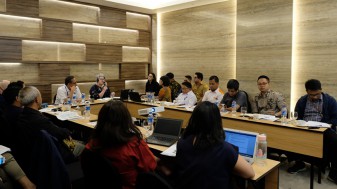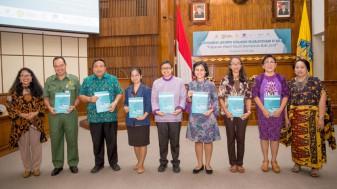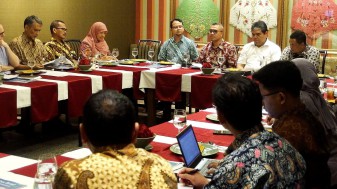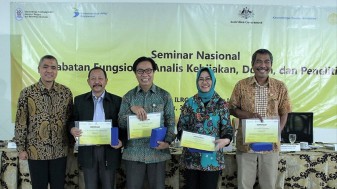Think tank organisations have their own uniqueness and strength in conducting research and formulating policy recommendations. These organisations provide critical contributions in promoting evidence-based policy changes. Therefore, they need to continue to be involved in development.
The role of think tank organisations in promoting evidence-based policy was discussed in the KSIxChange#34 event themed “Knowledge Collaboration between Litbangjirap and Think Tanks in Social Humanity Aspects”, Tuesday (29/6). Resource persons for this online discussion held by Knowledge Sector Initiative (KSI) included the Deputy for Social and Humanity Sciences of the Indonesian Institute of Sciences (LIPI), Tri Nuke Pudjiastuti, Deputy for Civil Society Development of the Institute for Research and Empowerment (IRE), Dina Mariana, and Deputy Director of the Centre for Strategic and International Studies (CSIS), Medelina K Hendytio. This event was broadcasted live on The Conversation Indonesia Youtube channel and was moderated by the Knowledge Sector Senior Coordinator of KSI, Iskhak Fatonie.

The Head of the National Research and Innovation Agency (BRIN), Laksana Tri Handoko, who was the keynote speaker, said that BRIN has a duty to integrate research and innovation activities scattered in various institutions and consolidate its many resources, from human resource, infrastructure, to budget. The objective is to create an ecosystem that drives people to contribute in research activities in order to promote innovation for economic advancement. For this purpose, research infrastructure will become an open platform that makes it easier for parties wanting to do research in their respective fields. “Because research is high cost and high risk. BRIN as a government agency facilitates and serves as the enabler for various parties,” he said.
In this context, he argues that think tank organisations can play a role as balancers. However, there needs to be a mechanism on business to business relations with Non-Government Think Tank Organisations (NGOs) and Ministries/Institutions (M/I) as users of their products/research outcomes.
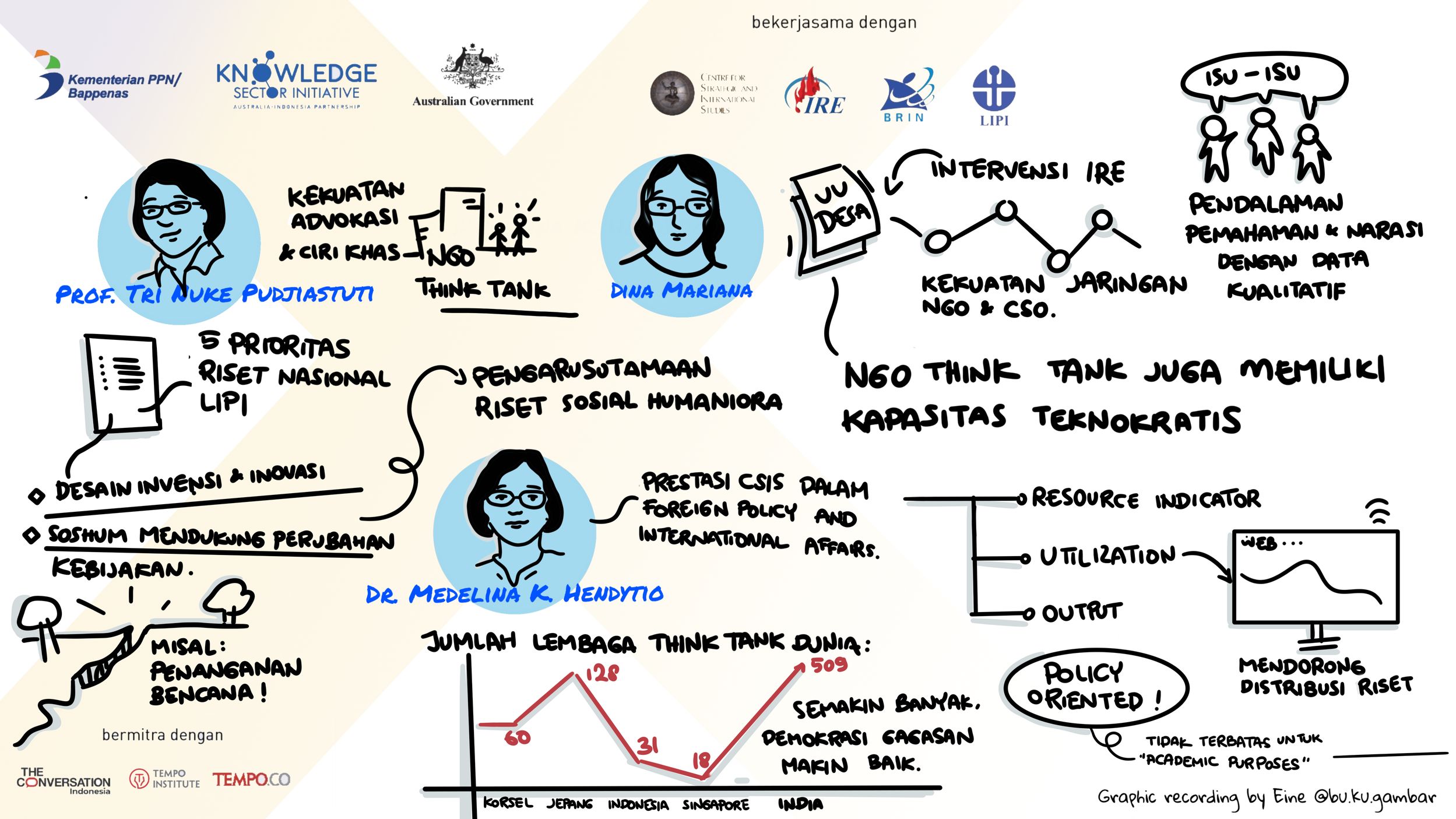
As the BRIN integration process continues, the Deputy for Social and Humanity Sciences of the Indonesian Institute of Sciences (LIPI), Tri Nuke Pudjiastuti, explained that currently the substance framework is being intensively prepared. LIPI has decided on five national research priorities for social humanity and designed the inventions and innovations. For social innovations that support policy changes, a linkage with different stakeholders, including M/I and partners, is crucial.
She thinks that NGO think tank organisations and private sector have extraordinary characteristics and strengths, thus becoming important parts in such linkage. Hence, it is important for BRIN to acknowledge the role of think tank organisations, because they can contribute in social humanity researches due to increasing emergence of social issues. There are plenty of evidences suggesting that NGOs play a part in cascading government policies to the people. “Collaboration is vital. The limitation for scientists to be directly on the ground can be strengthened by NGO think tanks. The social science approach should use penta-helix (involving the government, academics, private sector, civil society, and media), not only triple-helix (government, academics, private sector),” she said.
Meanwhile, the Deputy for Civil Society Development of the Institute for Research and Empowerment (IRE), Dina Mariana, shared her institution’s experience overseeing the advocacy of Village Law Draft (RUU Desa) during 2007 – 2013. This Draft was ratified thanks to the cooperation between NGOs, village officials, village community organisations, and many more. This experience shows that NGO think tank organisations have the capacity to conduct policy change-oriented research. Many academic papers were produced, including policy study papers and policy brief proposals. “Think tank organisations actually have the capacity in carrying out technocratic work, because we have a strong standard regarding this matter. We have legal drafting experts for sectoral and spatial issues, not to mention knowledge documents from study results. So we are able to adapt to technocratic processes,” she explained.
She added that in Indonesia, many think tank organisations have rich data and accountable comprehensive methodologies. These organisations are not only located in Jakarta or Java Island, but also other regions. Their respective knowledge is an important asset. “Perhaps there needs to be a series of dialogues with think tank organisations to further open BRIN’s insight and trust towards think tank organisations,” she revealed.
Regarding the quantity and quality of think tanks in Indonesia, the Deputy Director of CSIS, Medelina K Hendytio, explained that increasing number of think tank organisations means more diverse ideas, thinking, and innovation, and better democratisation of ideas. Advanced economy countries generally have a myriad of think tank organisations. Based on the report from Think Tank and Civil Societies Program (TTCSP) University of Pennsylvania, in 2018, Indonesia only had 31 think tank organisations. This number is far below China, which had 507 think tanks, and India with 509. In Southeast Asia, small nations like Singapore had 18 and Malaysia had 23. This report also mentioned that the 2020 Global Go To Think Tank Index ranked CSIS as the second best think tank organisations throughout Southeast Asia and Pacific Region.
Medelina said that it will be easier for think tank organisations to promote policy changes if they collaborate with the government. Existing cooperation patterns can serve as a reference to develop future relationship mechanism. Therefore, BRIN’s plan of encouraging open platform can be expanded to include not only exact sciences, but also social humanity. In addition, the use of data needs to be scaled out to licensing and infrastructure as well as financing data to promote open research funds for think tank organisations.
In accordance with the hopes of the Head of BRIN, this discussion is expected to become the initial point in developing a more structured collaborative exploration between government policy research organisations and NGO think tanks to support the research and innovation ecosystem in Indonesia.
KSIxChange is an interactive discussion initiated by Knowledge Sector Initiative (KSI), which is a partnership between the Government of Indonesia and Australia, funded by the Australian Department of Foreign Affairs and Trade (DFAT). KSIxChange, held at least once a month, aims to support the implementation of government programs by increasing public discourse based on the use of evidence in the policymaking process.

